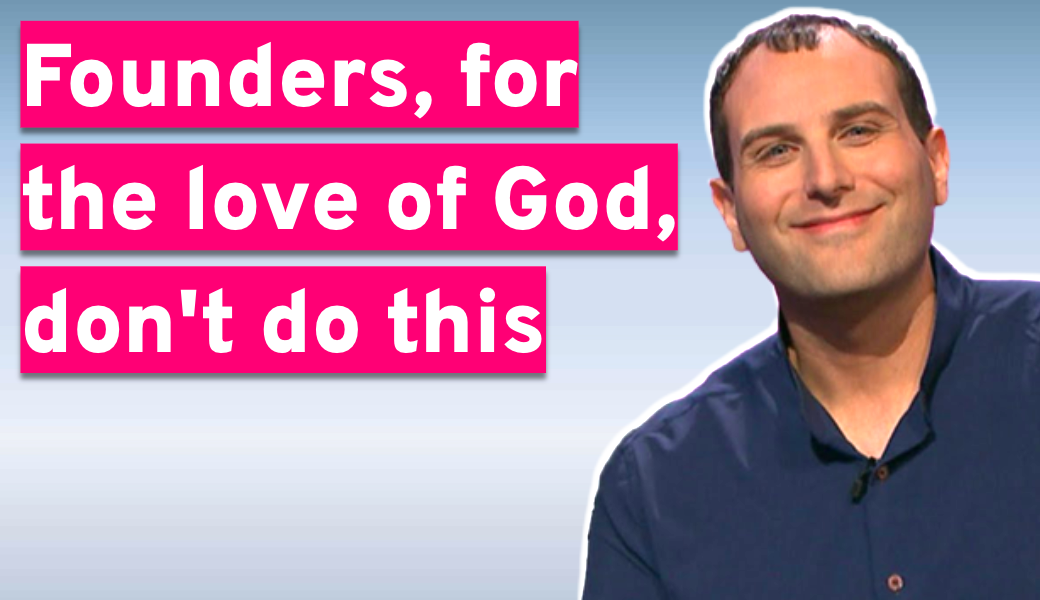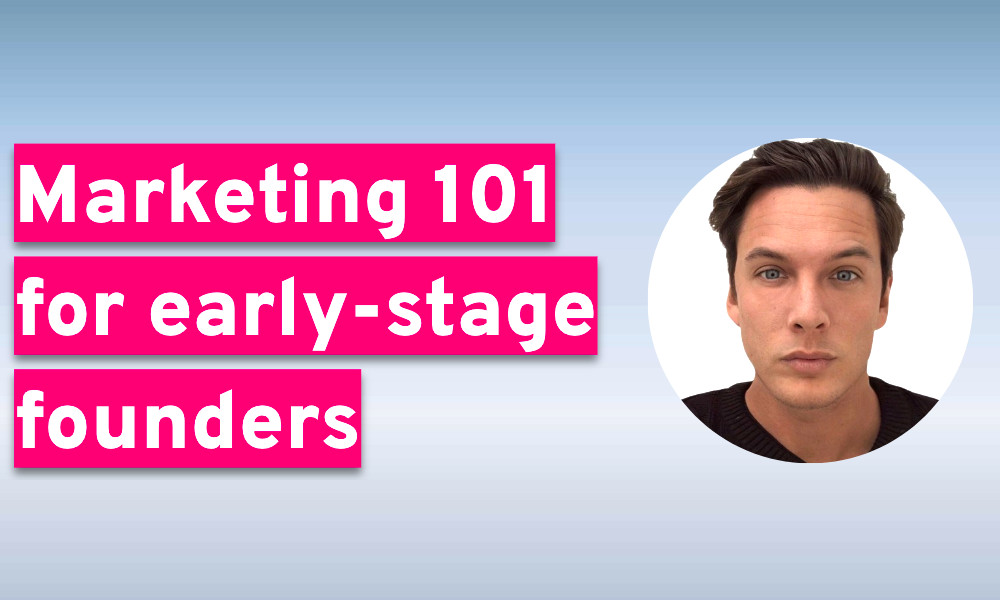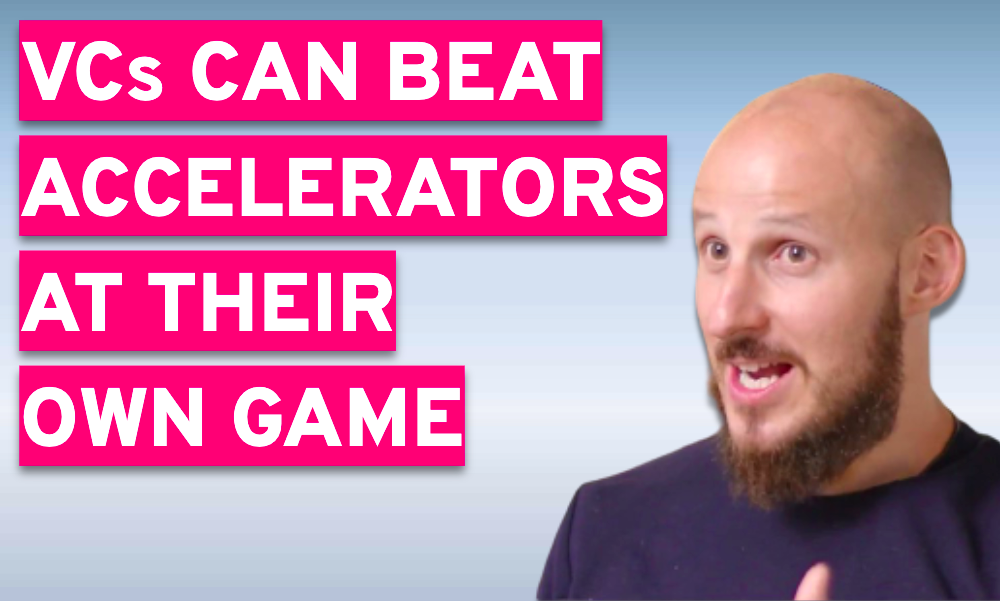I recently came across a new model - half studio, half accelerator - that caught my attention. Project 10K plans to "build, scale, and sell 10,000 B2B and B2C SaaS startups over the next 10 years." They intend to co-found the companies with entrepreneurs worldwide, and at the same time give anyone committed the chance to become a SaaS founder.
That's a big promise, so I hopped on a call with Project 10K's Founder Jared Yellin to find out more.
Steph: Hey, Jared! Welcome to OpenVC. I'm excited to learn a lot about this movement that you've pioneered with Project 10K. Can you give us an overview of what Project 10K is?
Jared: First of all, thank you Steph for this opportunity. Well, Project 10K is positioned to build, sell and scale 10,000 SaaS apps in the next 10 years. We are not an incubator or an accelerator or a software development firm or a venture studio or anything that you are thinking about right now. Project 10K is your Co-founder that will build, scale and sell your tech company with you along with an ecosystem of other tech founders who are committed to transforming their idea into an exit. We take a hands-on approach with our entrepreneurs. We provide the experience, resources, and network necessary to turn your concept into a thriving business.
Steph: Awesome! So let me ask you this, for the benefit of our community members, can you walk us through the key steps of company building by Project 10K and how you guys help at each stage?
Jared: To make it simple, let’s break it down to the 5 most critical steps. First, you need to develop a compelling and unique idea. To do this, you need to essentially identify a problem that needs solving—preferably one that is a pink ocean market. Remember, the goal is to come up with an idea that is both innovative and practical. Something that creates an impact. At Project 10K, we're not afraid to start from a napkin idea (we thrive on them), but we want to make sure that we assess it effectively. The founder will first go through our pitch process, then a due diligence phase, and finally our idea committee votes. That’s step one at a high level.
Steph : Ok, then what comes next?
Jared : Step 2 would be Creating a Minimum Viable Product (MVP). In Project 10K, we have this so-called Validation Challenge, where we go ALL-In with an entrepreneur to validate the overall viability of a tech idea by launching a Minimal Viable Company that can make money and begin to scale. Your MVP is the first version of your product or service that you'll release to the public. It should be fully functional but doesn't need to be perfect—you can always release updates and improvements down the line. Creating an MVP will help you save time and money in the long run, as it's much cheaper and faster to iterate on an existing product than creating something from scratch.
Steph: So you screen the idea, then validate it quickly on the market. Do you also help with building the team?
Jared : Of course, finding the right team can make or break your business. As they say, it takes a village to raise a child and a strong team of talented individuals to build a successful tech company. In addition to finding co-founders who complement your skillset and share your vision for the company, you'll also need to hire employees who are experts in their field and who will be able to help take your company to new heights. This is where Project 10K steps in. We have our own team that will support you in defining and launching your MVP to exit, from a world-class software development team, a top-notch go-to-market and sales division, along with finance, legal support, and business consulting. That way, you have the industry's dream team right at your disposal.
Steph: That sounds almost too good to be true. What's the model? How do you guys make it work business-wise for you and for the founder?
Jared : We take equity and operate basically at cost. If an entrepreneur is accepted into Project 10K, we start with the Validation Challenge which depending on the complexity of the build kicks off at $30k for which we have funding partners to help support in obtaining these funds but most either have the funds or prefer to raise through friends and family.
Steph: Ok, I have to say, this sounds appealing. Well, in terms of funding, can you tell us how you approach that key step?
Jared: Of course! Tech startups will have difficulty moving to the next stage without funding, which leads me to the next point. As a start up business, you need to Secure Funding. Starting a tech company takes money—there are no two ways. You'll need to raise capital to finance the development of your product or service, pay for marketing and advertising, and cover any other operational costs associated with running your business. There are numerous ways to raise capital, so it's vital that you explore all of your options and choose the one that makes the most sense for your company. This can be done through venture capitalists, angel investors, or crowdfunding platforms like WeFunder.
Steph: I've counted 4 steps so far: idea, validation, team, and funding. What is step 5?
Jared: Last but not the least, all of these efforts would be nothing if people don’t know about your product or service. After months (or even years) of hard work, it's finally time to launch your product or service! This is obviously a very exciting time, but it's also essential that you don't get ahead of yourself—launching is just the beginning, and there's still plenty of work to be done to ensure long-term success for your tech company. With Project 10K, your cohort will rally energy around you, your team at Project 10K will be fully immersed with you, and your family in our ecosystem will go above and beyond to ensure we validate quickly! We recently launched TruFaves, which is a platform that cuts through the noise to help you find the best recommendations from your most trusted sources. We launched only a few months ago and are well on our way with over 1,000 users.
Steph: Amazing, thanks Jared. I love how you guys are innovating with the traditional venture model and giving founders from all horizons a fair shot at making their visions come true.
Founders, if you think Project 10k could be a good fit for you, register now and join our webinar on Nov 9!
About Project 10K
Project 10K combines the best elements of a Venture Studio, Incubator, Accelerator and Growth Hacking Agency with a Venture Capital solution to help visionary SaaS Entrepreneurs launch their ideas quicker, with less risk, while keeping more equity. As the ultimate co-founder, Project 10K provides everything an emerging SaaS company needs to build, scale, and eventually sell including product design, management, development, UI/UX, go-to-market, branding, press, business development, sales, legal, fundraising, bookkeeping, operations, customer support, exit planning and more. Project 10K plans to build, scale, and sell 10,000 SaaS applications over the next 10 years by transforming a napkin idea into a scalable company on the road to an exit. Project 10K democratizes software by giving anyone committed the chance to become a SaaS founder regardless of their age, gender, ethnicity, or educational background.










